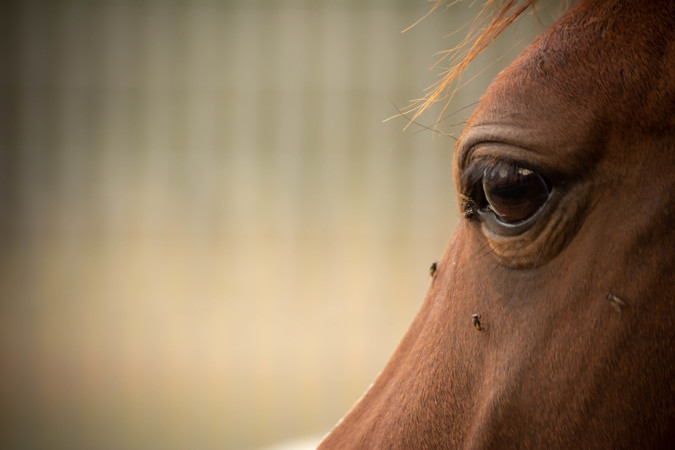Lets discuss annoying flies...
30 Aug 2023
The problems caused by flies can range from a mild annoyance to a severe worry making the horse difficult to control. Similarly, flies may cause minor skin irritation due to bites, or they may cause infection to cuts and wounds.
Midges can cause an allergic skin reaction in some horses, commonly known as Sweet itch. This is a result of the insect saliva being injected into the skin by the midge, and can cause severe distress to the horse, often rubbing and scratching themselves relentlessly until they are red raw.
The question is, how do we control these flies? Sadly, there is not a simple answer as there are many different species of flies with different lifecycles and different feeding habits. Some of the pointers below may help though.
Chemical control:
- Permethrin – flies and midges
- Cypermethrin – flies, lice and midges
- Permethrin + Citronella – flies, lice and midges
One problem with the use of these products on horses is the practice of frequent grooming and shampooing. There are currently no licenced products for the control of mites and ticks in horses, you would need to speak to one of our vets for a suitable product to be prescribed.
Environmental insecticides:
Insecticides have the effect of killing adult flies, they can be applied to the walls of buildings or middens. Use them around the flies ‘resting areas’, they are often found in rafters or beams when you look up you can see black spots in these resting areas (produced by flies when they vomit up and re swallow their last meal) or on white or south facing walls where they can keep warm.
Other chemical treatments exist which give temporary relief indoors. Space sprays have a quick ‘knock down’ effect but they do not have a long-acting action. Baits are also available containing a mixture of a chemical that attracts flies and a chemical that kills them. Care must be taken when using these products that children, pets and other livestock do not feed on them.
Repellents:
As the name suggests these do not kill flies, they repel them from the area used.Repellents contain natural oils such as citronella or chemicals such as Deet or DMP. The effect of these does not last longer than a couple of hours as they are continually giving off an invisible vapour, therefore it soon disappears off the animal. With this in mind it is best to apply just before you ride.For horses with Sweet itch repellents can be of value as the period when midges bite is usually about 2 hours per day (one hour before sunset and one hour after sunset) The application of repellent at this time coupled with stabling during this period of the day may help to control or reduce the problem.
Hygiene
All insects require food, water and warmth to survive and breed. Damp and decaying matter such as manure or even grass cuttings are perfect. A female house fly can produce 400 to 500 eggs in her lifetime. Potentially each day a horse can produce enough manure to support more than 25,000 fly larvae. Put the two together and there is a problem! The solution is not to allow the manure to accumulate in and around the stable. It must be stored in a well-drained midden well away from the stables.
Physical protection
Fly fringes, fly nets and summer fly sheets worn by the horse will provide a degree of protection. Boett rugs (or other brands) are specifically designed with a much denser weave to prevent midges getting to the skin to feed and can offer relief to horses suffering from sweet itch.
Avoidance
Consider the times of day that you turn out and bring in. The use of stable fans can also be a big help when your horse is in, especially for those suffering from Sweet itch.
‘Treat’ animals when the flies are at their most active.
